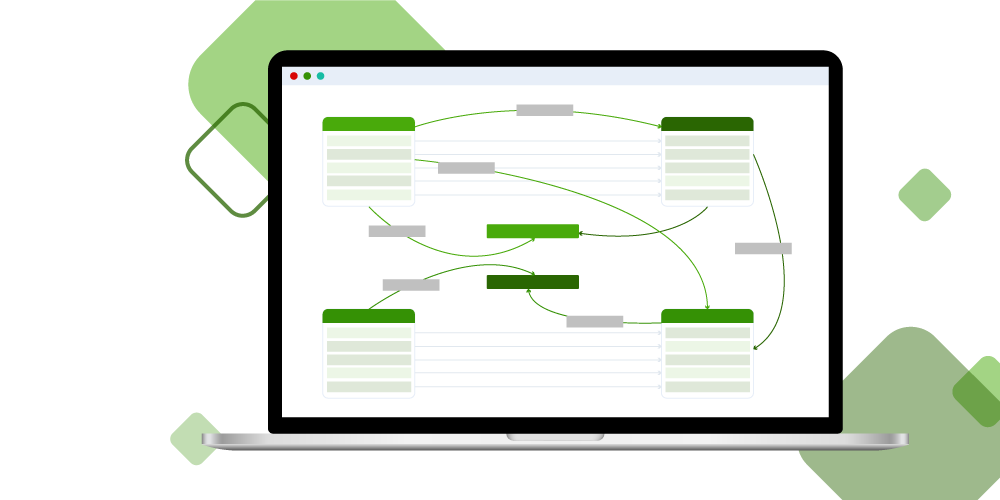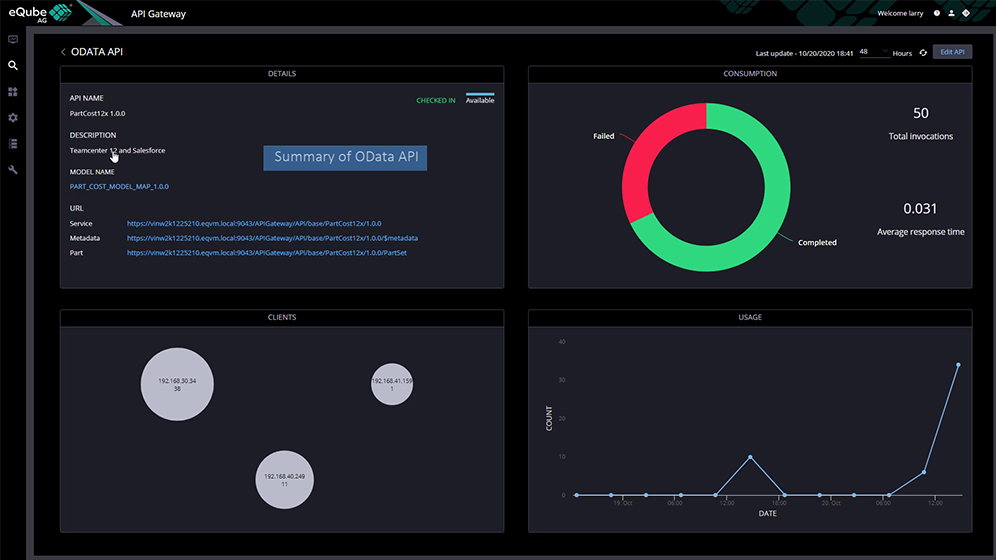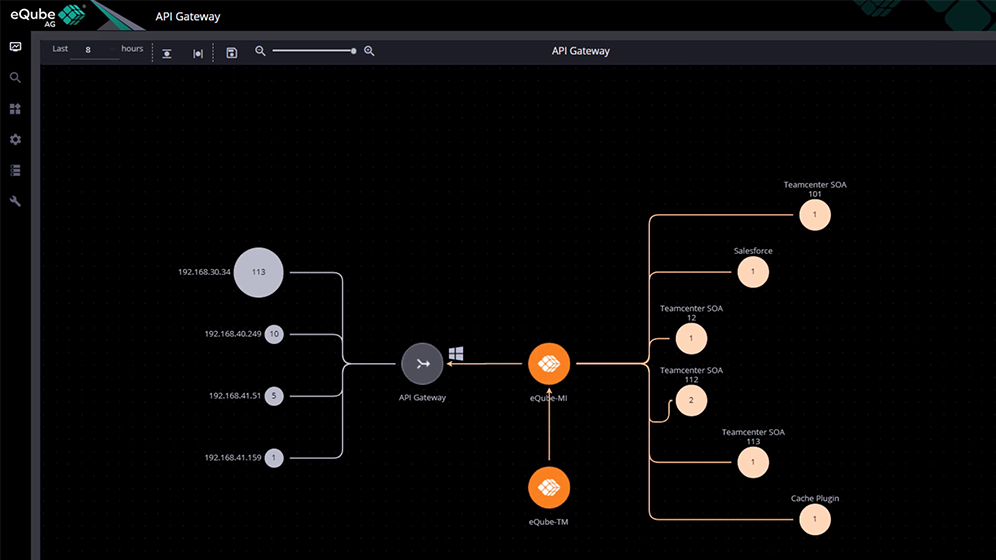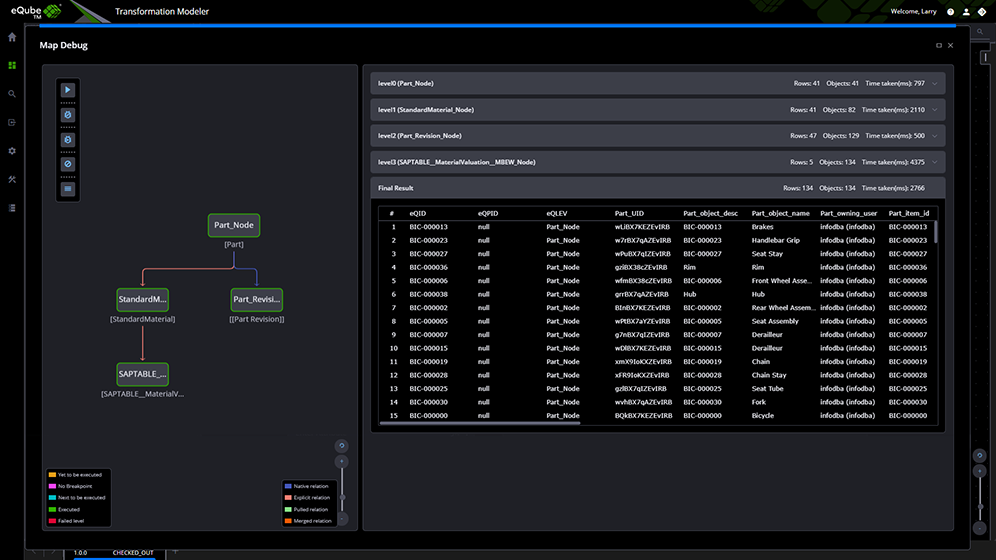
Visualize Data & Debug
- Debug all nodes
- Particular node
- Only Source
- Only Destination
- With Data filter
eQube®-Transformation Modeler (TM)
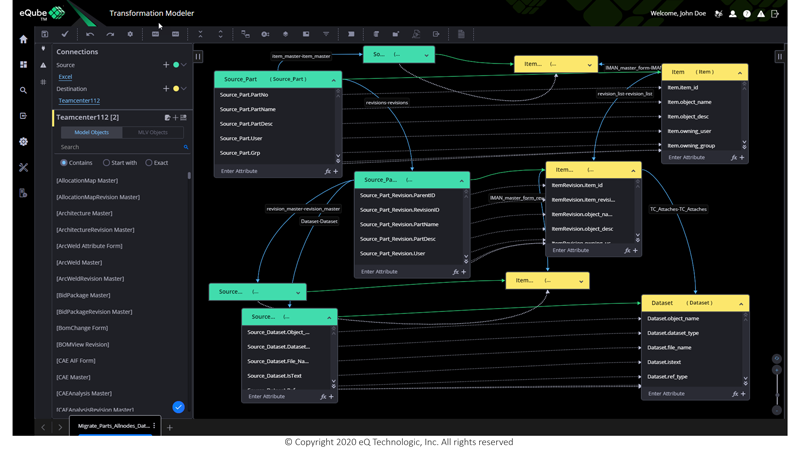
The Transformation Modeler provides unprecedented capabilities
to establish a catalogue / knowledge base of 'models' and 'transformation maps'
for data federation, 'For-Purpose' Apps, application
integration and migration solutions.
It enables developers to visually define, maintain, and update data transformation 'maps'
and solution 'models' between source and destination data elements (objects, relational dB
tables, files, XML, JSON, etc.).
It is possible to store a catalogue of connected applications' data models, simple / complex
maps and rule-based transformations between systems.
The eQube®-TM catalogue is discoverable for reusing and re-purposing 'maps'
and 'models' that speed up the development and maintenance of new interfaces and / or new
APIs.
Here is an example of TM maps that identify 'gaps' in mapping.
More...
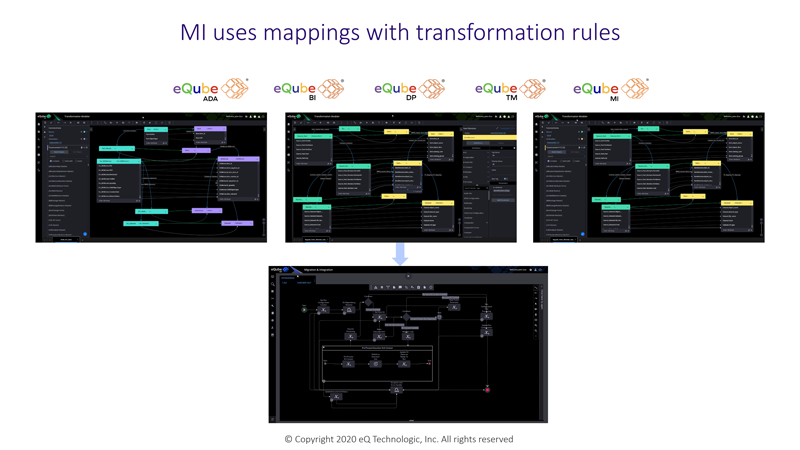
eQube®-TM assists in defining 'For-Purpose' applications' data models
derived from the catalogue / knowledge base.
It also enables data model definition for REST services or OData services or Web
services. Maps are defined with a powerful visual and intuitive
user interface enabling speed and flexibility to augment maps and models. The catalogue
of maps is searchable and enables reuse as well as augmentation
i.e., 'repurpose' of maps to rapidly build and extend models as well as REST or OData or
Web services.
TM defined maps are readily consumed in the MI processing pipelines as 'activities' and
are also integrated with eQube®-API Gateway that enables REST or
OData or Web service definition. These TM capabilities accelerate model driven
application development with any low code development platforms
(i.e., eQube® Low / No-code for API implementation as well as for App
development). The catalogue of maps and model definitions are leveraged by all
eQube® offerings for data curation, 'For-Purpose' Apps development, data
federation, secure collaboration, application orchestration, integration,
synchronization, and migration solutions. The diagram shows an example of TM maps being
directly consumed in the MI processing pipelines.
The sophisticated, intuitive rules-based data-mapping and transformation features of TM are capable of supporting large complex data models usually found in engineering, PLM, as well as industries such as insurance and telco. Mapping leverages the integrated and powerful data virtualization layer with semantics. eQube®'s sophisticated semantic layer out of the box includes Manufacturing, Finance, and PLM concepts like MBOM, BOP, Revenue, Margins, Parts, Changes, eBOM etc. Maps are neutral to input and output data formats as well as lower level constructs and can support multiple outputs such as COTS specific object / relationships, relational database tables, files, SOAP, JSON, etc. with different data models.
Less...
The eQ Approach
eQube®-TM delivers an efficient alternative to creating and managing data mappings across the enterprise. Its knowledge base inherits data model from source systems and augments it with a collection of:
- Annotations: during requirements phase, SME's use annotations to add rules and guidelines at attribute, object and map level that assist solution architects while designing the solution.
- Tags: source system tags are added automatically by TM as the maps are being built, viz. unique constraints, foreign keys, list-of-values, data types etc.
- Enablers: solution architects add enablers to drive data flow and process decisions to define generic solutions.
eQube®-TM knowledge base allows SMEs to capture and build semantic maps and business rules between disparate systems. These maps are further used in building migration and integration solutions using eQube®-MI. The knowledge base allows SMEs to define key enablers that drive the eQube®-MI based solutions and shield the migration / integration solution from the ripple effects of frequent data model changes. This approach provides solution architects to build a robust, loosely-coupled and generic framework.
